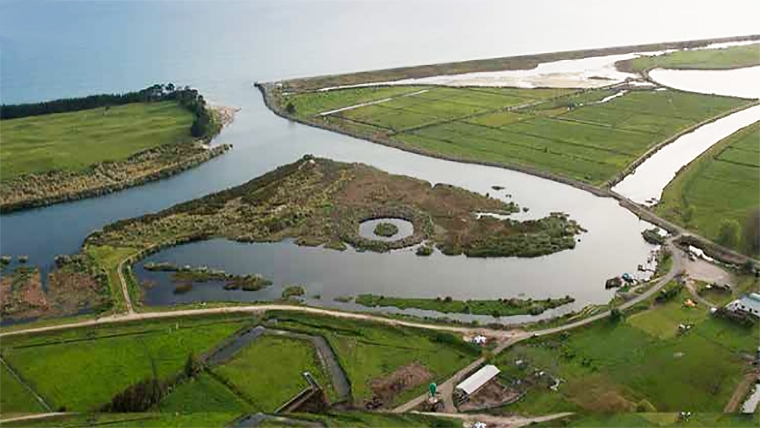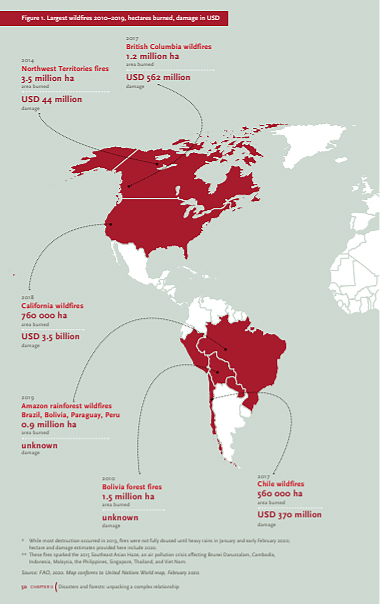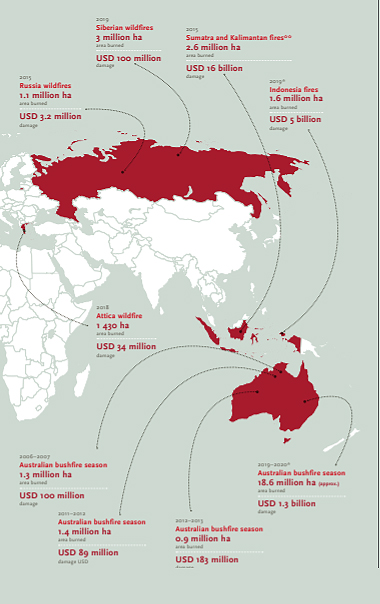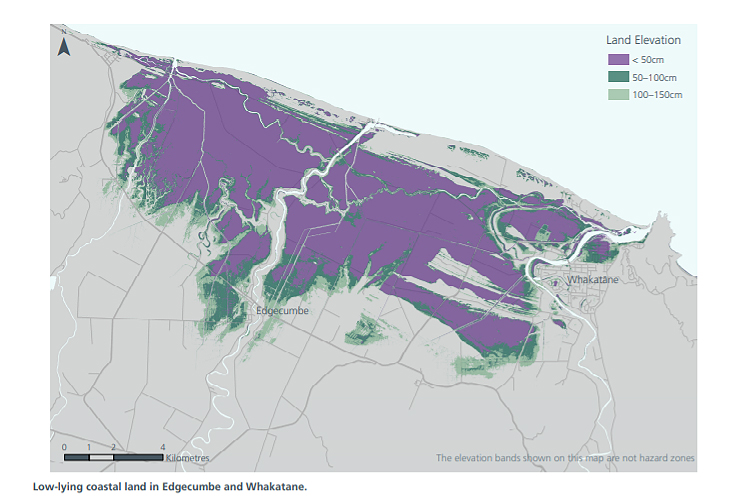
Compared to many parts of the world, New Zealand and a few other nations seem to be weathering the threats that are real and potential, both profitably and with minimal changes. However, it is worthwhile taking note at what ‘experts’ consider to be what the threats are, how they relate to New Zealand agriculture, and where possible, see how they may be dealt with.
Back in 2019 not long before COVID-19 started making its presence felt Time magazine was asking the question about the ability of the planet to provide enough food for the predicted 9.7 billion or so that are meant to be on the planet by 2050, especially with the impact of climate change likely to be having all sorts of (in the main part) negative impacts.
The United Nations’ International Panel on Climate Change was (is) estimating a 2-6 percent decline in crop yields from the effects of climate change and the scenario painted sounded very much like the ideas proposed by Malthus (1798). Malthus believed that the earth’s human population was outstripping the planet’s ability to produce food and while technology would lift production the same technology would also lift the human population and eventually the same problem would reoccur. At some point in the future the human race would have a massive recorrection.
While much of his theory has been discredited at least for the last couple of hundred years it is quite easy to see how a pessimist could start to believe that there is some truth in what he was advocating. Perhaps the most encouraging future were the numbers published a couple of weeks back showing how the potential for the world population to start declining is quite real. However, regardless of what the future holds there are still some significant threats global agriculture is going to have to negotiate.
The UN Food and Agriculture Organisation (FAO) put drought head and shoulders ahead of other threats. Something New Zealand farmers can all relate to.
According to a FAO report published in March this year, annual occurrence of disasters is now more than three times that of the 1970s and 1980s.
An interesting fact they came up with was (presumably when natural disasters occur) agriculture absorbs a disproportionate 63% of the impact when compared to other non-agricultural sectors. In the report the majority of the focus is on developing economies however there is still about 1/3 of the 7.5 billion global population that are affected. The area where some impact of climate change on developed countries is discussed is forest or wildfire where there has been a huge increase in the last decade. Over the years over 40 million hectares has been burnt with Australia leading the stats.


While the report identifies drought as the single greatest culprit of agricultural production loss, floods, storms, pests and diseases, and wildfires have all had major impacts. Also of course latterly the impacts have been amplified by the presence of COVID-19 through reduction in labour able to harvest and a decline in logistical support in some regions.
While New Zealand at this global level of impact has been relatively unscathed the same threats do also apply here as we have seen in the last couple of years. Just at a smaller scale than other countries.
One of the areas given little coverage in the report was the impact and threat of sea rise over time. For New Zealand this could be one impact that will be difficult to mitigate. The effect can be two-fold, one is from the direct loss of land used for food production; the other will be from the relocation of populations from cities as they are impacted upon. Looking at NIWA predictions for New Zealand the future is cloudy. Since 1900 oceans around New Zealand have risen on average by approx. 1.65 mm per year however since 1992 that has increased to 3.54 mm per year. This has been an accumulated total of about 20 cms (a foot) over the last 120 years. NIWA are predicting increasing lifts in sea levels in the future, although state that predictions are unreliable. MFE are predicting that by 2100 seas around New Zealand will have risen between 0.46 and 1.05 metres.
An example of what this could mean is a snapshot of an area of the Bay of Plenty which is particularly low lying.

Most regions of New Zealand have similar areas to a greater or lesser effect.
On a brighter note the report does believe a disaster resilient future is possible.
Through investing in resilience and disaster risk reduction, especially data gathering and analysis for evidence-informed action, it is possible to achieve sustainable future, FAO's report argues. However, given the response of many of the more well endowered countries to developing countries over issues surrounding the COVID-19 pandemic, then there is still a lot of lessons to be learnt around sacrificing short term gains for longer term benefits for the wider good.
Probably the best New Zealand can do, which seems to be its current policy, is keep its head down and get our own patch in order as best we can.
Regardless of the food production levels within New Zealand the odds are heavily in producers favour of having high demand for products, regardless of what they are.
No chart with that title exists.
22 Comments
Great photo.. the Maketū Estuary project is a great example of the kind of restoration project needed all over the country;
https://www.boprc.govt.nz/our-projects/kaituna-river-rediversion-and-ma…
I believe Malthus got it right - his prediction would have been borne out earlier had it not been for the Haber-Bosch process;
https://en.wikipedia.org/wiki/Haber_process#:~:text=The%20Haber%20proce….
Perhaps there will be another tech-fix for the over-population/how to feed the world problem but as a human species we would need to become far more devoted to equitable re-distribution of resources;
'The problem with Malthusians, Bailey writes, is that they “cannot let go of the simple but clearly wrong idea that human beings are no different than a herd of deer when it comes to reproduction.” Humans are thinking animals. We find solutions—think Norman Borlaug and the green revolution. The result is the opposite of what Malthus predicted: the wealthiest nations with the greatest food security have the lowest fertility rates, whereas the most food-insecure countries have the highest fertility rates.'
https://www.scientificamerican.com/article/why-malthus-is-still-wrong/
"Most people still fail to comprehend the magnitude and menace of the 'Population Monster' ... If it continues to increase at the estimated present rate of two percent a year, the world population will reach 6.5 billion by the year 2000. Currently, with each second, or tick of the clock, about 2.2 additional people are added to the world population. The rhythm of increase will accelerate to 2.7, 3.3, and 4.0 for each tick of the clock by 1980, 1990, and 2000, respectively, unless man becomes more realistic and preoccupied about this impending doom. The tick-tock of the clock will continually grow louder and more menacing each decade. " Malthus? No, Borlaug!
Kate
Would you like explain your comments “” but as a human species we would need to become far more devoted to equitable re-distribution of resources;””
In the NZ context ?
I'll try. Leaving land in it's natural state and not expecting every sq meter to produce for 'us'.
Here's a good background that is NZ-specific;
https://www.mfat.govt.nz/en/peace-rights-and-security/our-work-with-the….
We are lucky to be in a temperate climate. Also to have a lot of natural fresh water. The next major war will be fought over water.
Nz needs to up its storage of water , as wetlands and the likes of pumped storage. Luckily the 2 can go hand in hand to some degree.
Aquifiers in the Hauraki plains are still down 1.2 metres on normal , very dry for July. This summer will be interesting , another drought and we may have to call it a normal summer.from now on .
Ah. The Netherlands ? Have you ever been on the Polders and read how they were/are created and maintained ? Or perhaps, visited much of Central Tokyo which is also under sea level ? Jus saying is all boss.
If the sea rises as forecast, the Netherlands may be gone. And the weather events may fill up the inside.
But on a serious note - this is a good piece of thinking/writing. Seems we might be moving the conversation in the right direction.
Makes a contrast with the spoiled-brat protests today.
Spoilt brats? Sounds like someone with a big chip on their shoulder. How you can dismiss 10s of thousands of fellow New Zealanders and their right to voice their frustration is beyond me. As a spoilt brat I am heartened and grateful for all the support today from my fellow New Zealanders from across our society's spectrum.
Who usurped democracy to further their own ends? Absolute arrogance. Unforgivable.
I have no problem with old-school part-of-the-community farmers, caring for land which they proudly passed on. I do have a problem with fossil-fuels being turned into food in a very temporary fashion, drawing down other counts and stocks in the process; business the only goal.
And that ultimatum sounded like bullying/blackmail, to me.
" that ultimatum sounded like bullying/blackmail, to me." You may well hear some who were part of the protests say the same thing about the way they feel they have being treated by this govt. Unions when issuing strike notices etc are also issuing a similar ultimatum. So do you consider them to be bullying/blackmailing employers when doing so?
So now we are spoilt brats! Haha! That would make you an arrogant, condescending crank!
Personally, I'd say the speed of change being experienced by the farming community has a lot to do with all the years of denial , BAU lobbying and the lack of responsible governance that preceded it. If action to limit destruction had been taken when problems first became screamingly obvious in the '90s, the road to sustainability would have been flat, not steep. But no. Instead of limiting destruction, we embraced obstruction! I can understand farmer anger, but as usual, when only part of the information is accepted, the crowd is looking for witches to burn. They'll listen to Nats saying, we hear you. We'll repeal the ute tax, allow you unrestricted right to pollute, flood the country with more migration, etc, etc and think yeah, that's what I want to hear. The short termism of "profit now" and f..k the future doesn't actually separate us from "profiles" quote above! "The problem with Malthusians, Bailey writes, is that they “cannot let go of the simple but clearly wrong idea that human beings are no different than a herd of deer" We are the herd of deer, just with lots of clever, resource intensive gadgets! As these protests clearly show!
" the other will be from the relocation of populations from cities as they are impacted upon."
In hawke's bay (which has some of the best soil in the country) at least 600 hectares has been built on around hastings and napier since 2003. And much of napier will end up underwater in the not too distant future, taking more productive land with it.
Ever since the aftermath of the second world war NZ farmers have been encouraged by successive governments of different stripes to increase production, largely to help pay down debt incurred during the war and to enable improved living standards for all New Zealanders. This they have managed to do largely by improving animal management and grass species. During this time our cities have continued to expand into the countryside, all the while encroaching on some of our more productive land. The net result has been that farmers have been expected to produce more from less. Their multi-generational business model has been built around this proposition. Yet now they are being told by a quasi socialist administration that came to power without a mandate that everything they have been doing for the last seventy five years is wrong. This administration has trampled on landowners property rights in pursuit of an ideological nirvana that says we can have our cake and eat it too - is it any wonder that those landowners are up in arms? I would wager that if urban property owners were facing the same constraints on the use of their land they too would be marching in the streets.
Ever since the aftermath of the second world war NZ farmers have been encouraged by successive governments of different stripes to increase production, largely to help pay down debt incurred during the war and to enable improved living standards for all New Zealanders. This they have managed to do largely by improving animal management and grass species. During this time our cities have continued to expand into the countryside, all the while encroaching on some of our more productive land. The net result has been that farmers have been expected to produce more from less. Their multi-generational business model has been built around this proposition. Yet now they are being told by a quasi socialist administration that came to power without a mandate that everything they have been doing for the last seventy five years is wrong. This administration has trampled on landowners property rights in pursuit of an ideological nirvana that says we can have our cake and eat it too - is it any wonder that those landowners are up in arms? I would wager that if urban property owners were facing the same constraints on the use of their land they too would be marching in the streets.
Ever since the aftermath of the second world war NZ farmers have been encouraged by successive governments of different stripes to increase production, largely to help pay down debt incurred during the war and to enable improved living standards for all New Zealanders. This they have managed to do largely by improving animal management and grass species. During this time our cities have continued to expand into the countryside, all the while encroaching on some of our more productive land. The net result has been that farmers have been expected to produce more from less. Their multi-generational business model has been built around this proposition. Yet now they are being told by a quasi socialist administration that came to power without a mandate that everything they have been doing for the last seventy five years is wrong. This administration has trampled on landowners property rights in pursuit of an ideological nirvana that says we can have our cake and eat it too - is it any wonder that those landowners are up in arms? I would wager that if urban property owners were facing the same constraints on the use of their land they too would be marching in the streets.
Ever since the aftermath of the second world war NZ farmers have been encouraged by successive governments of different stripes to increase production, largely to help pay down debt incurred during the war and to enable improved living standards for all New Zealanders. This they have managed to do largely by improving animal management and grass species. During this time our cities have continued to expand into the countryside, all the while encroaching on some of our more productive land. The net result has been that farmers have been expected to produce more from less. Their multi-generational business model has been built around this proposition. Yet now they are being told by a quasi socialist administration that came to power without a mandate that everything they have been doing for the last seventy five years is wrong. This administration has trampled on landowners property rights in pursuit of an ideological nirvana that says we can have our cake and eat it too - is it any wonder that those landowners are up in arms? I would wager that if urban property owners were facing the same constraints on the use of their land they too would be marching in the streets.
Good comment - until near the end. Actually, we all fell for the emanations from the High Priests or the new religion. They're called economists - but they really only look backwards to project forward, flying blind. The religion was endless growth on a finite planet. The inflection-point - as you rightly identify - was WW2. Since then, we've done what we call the 'Great Acceleration'. And in 70 short years, we have brought the planet to its knees. Cities encroach n the land which they get fed by; agriculture draws-down finite resources (fossil fuels and feedstock, phosphate, aquifers, rainforest space, biodiversity) to feed them, and they multiply.
Was a recipe for disaster, and its coming home to bite us on the bum. Nobody is 'to blame', but everybody is going to have to make massive readjustments. And in the process, most of our relative values will be turned on their ear. Farming HAS to become regenerative. Populations HAVE to reduce (before nature does it for us, or we do it via war). Infrastructure has to become maintainable ex-fossil energy - and we're a mile away from that. And going in the wrong direction.
Interesting times....
pdk, what is your definition of regenerative ag? 'Regenerative' is thrown around a lot these days, almost to the point of making it meaningless as terminology. Perception of 'regenerative' is different according to who you talk to. 'Regenerative Tourism' is a catchcry around here now. Interested to know what your definition is.
The can can't be kicked down the road anymore. I would think national are quite happy to have labour doing the hard work at the moment, they would have to do similar, which would not be popular with the following.

We welcome your comments below. If you are not already registered, please register to comment
Remember we welcome robust, respectful and insightful debate. We don't welcome abusive or defamatory comments and will de-register those repeatedly making such comments. Our current comment policy is here.